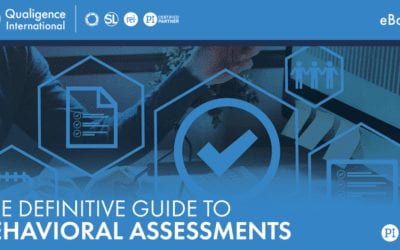Look, we’ve all been there.
You’re frustrated with the way someone is behaving…
So you jump to a conclusion about why it’s occurring.
“They’re disagreeing with me because they don’t like me and think I’m stupid!”
It can happen so fast you might not even realize what’s happening in your thought process.
Unfortunately, making assumptions like this is one of the most harmful things you can do as a leader.
And we see it all the time in the workplace.
Let’s take a closer look at WHY assumptions are so harmful – and what you can do to avoid making them.
You’re Liable to Make the Wrong Assumptions About What Your Team Members Want
You know what they say about assumptions…
The biggest problem with assumptions is that you’re liable to jump to the wrong conclusions.
It’s easy to assume team members want one thing…when it couldn’t be farther from the truth.
Take the example I mentioned above. If you’re often finding yourself in disagreement with a team member, there are several different explanations for why the team member is so contentious.
Sure, it’s possible they don’t like you and think you’re unintelligent.
It’s also possible that they simply have a very different perspective and want to share it!
Alternatively, they might have a great deal of respect for your leadership but fear you’re overlooking something in the decision-making process.
But without having a direct, open conversation with the individual in question, you’ll never really know.
Even if your assumption ends up being correct, talking to the individual in question and hearing their side of the story is always informative.
It’ll help you understand not just what behavior is occurring, but WHY it is occurring and what you can potentially do to fix it.
Performance issues aside and personality clashes aside, this same idea applies to situations where you’re simply trying to help someone deliver their best work on the job.
But that’s not the only reason assumptions suck!
Assumptions Damage Your Relationships
An important part of any relationship is two-way communication. It’s critical that both sides get the opportunity to make themselves feel heard.
But if you’re making assumptions about how someone feels, what they want and so forth, you’re not letting them be heard – you’re jumping to your own conclusions.
Oftentimes, this creates a vicious cycle of negative feedback. To go back to the earlier example, if you feel like someone doesn’t respect you because they always disagree, you may start acting more coldly toward them. You might even do this without realizing it. This often creates a negative feedback loop.
Now your team member may sense your frustration and irritation, jump to conclusions of their own, and the relationship has soured over a simple misunderstanding!
Lastly, assumptions close your mind. They make it harder for you to receive and interpret new information. They make it harder for you to see new points of view and understand different perspectives…because in your head you’ve already figured it all out.
So ditch them!
What Leaders Can Do Instead
Knowing that you need to stop making assumptions is the easy part. The hard part is productively moving forward and engaging in open, direct communication. If you’re serious about improving as a leader, you have to make that pivot.
The best thing you can do is approach the conversation with the intent to listen to understand, not to judge. Focus on understanding the issue before you make judgements or decide a course of action. Make sure you’re really listening…not just waiting to talk!
Try asking open-ended questions. These are questions that can’t be answered with a “yes” or “no” answer. They’re useful because it prompts the other person to talk, open up, and offer their perspective.
If you’re not sure what questions to ask, try using one of the ones below. These are my “baker’s dozen” questions for coaching and leadership. You don’t have to ask them all or ask them in any certain order – they’re just options for working to understand someone or understand an issue.
- Where are you at?
- What is working?
- What isn’t working?
- Why do you feel it’s not working?
- What do you believe is missing?
- What do you feel you need next?
- What do you ultimately want in this situation (SMART goals)?
- Why do you want that?
- What are the major obstacles in the way?
- What have you done so far to push through these obstacles?
- What were your results with that?
- What do you still need assistance with?
- What’s the one thing you can do today to move forward?
Effective Leaders Avoid Making Assumptions
The bottom line is that whatever you do, you should avoid making assumptions whenever possible as a leader. It’s not good for you OR your team – and it’s liable to make a bad situation worse!
The sooner you stop making assumptions, the sooner you can get clear eyes on the situation at hand, better understand those around you, and make a greater impact.



